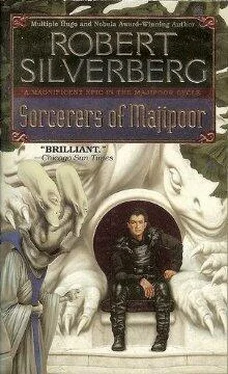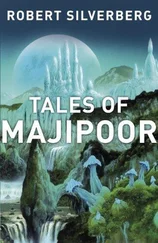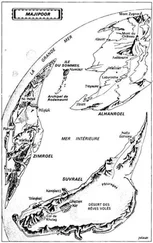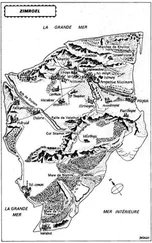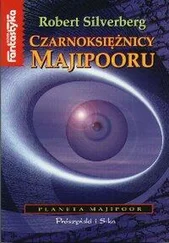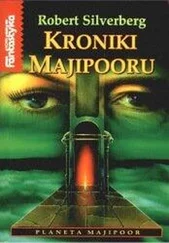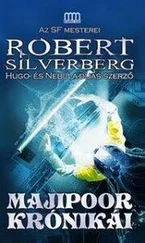“Which would give them opportunity, also, to build their own forces,” said Gialaurys. “No. I say hit them now, flatten them with our mollitors, send them slinking back to Korsibar in tatters as we did with Farholt’s army. Two such defeats running and the people will begin to tell each other that the hand of the Divine is against the usurper. Wait, and it’ll only give him more time to make himself look like a legitimate king.”
There was a silence then; and into it, in a low voice edged with melancholy, Svor said, “Legitimate—illegitimate—ah, my good lords, how much blood do we intend to shed over these words? How many wounds, how many deaths? If only Majipoor were not saddled with this devilish thing of a monarchy at all!”
“Saddled, Svor?” said Septach Melayn. “And devilish? A strange choice of words. What are you saying?”
“Let us suppose,” Svor replied, “that we had no lifelong kings here at all, but only a Coronal who served by the choice of the high lords and princes, perhaps for a term of six years, or perhaps eight. And then he would step down from the throne and another be chosen in his place. With such a system, we would tolerate Korsibar’s holding of the throne, irregular though it may be, with the agreement that after his six years, or eight, he would go his way, and Prestimion could have the crown. And after Prestimion, someone else, six or eight years farther on. If that were so, we would not have this war, and fine men dying on muddy fields, and before long cities burning as well, I think.”
“What you say is lunacy,” retorted Gialaurys. “A recipe for chaos and nothing else. Kingship should be embodied in one great man, and that man hold the throne so long as he lives, and then go to the Labyrinth and have the higher throne to the end of his life. It is the only way, if we are to have a stable government in the world.”
“And also,” said Septach Melayn, “consider this: under your scheme the Coronal would lose all power in the last year or two of his reign, as everyone came to see that he was soon no longer to be king; for why fear him, with his time almost up? And another thing: we would always have men jostling for the succession, hardly one Coronal on the throne but five or six others already angling to take his place after his term of office. Gialaurys is right, Svor: a crazy system. Let us hear no more of the idea.”
Prestimion called upon them then to return to the theme of their meeting, whether or not to launch an attack on Navigorn’s army. It was so resolved, though the brothers Gaviad and Gaviundar remained cool to it, and scouts were sent out in several directions. Soon Prestimion had word from them confirming the essence of Thalnap Zelifor’s spell-casting. Navigorn was five days’ march north and east of them, at a flat dry place called Stymphinor. He had with him an army of dismaying size, and, said the scouts, an entire large corps of wizards and mages as well.
“Give me one good man with a sword and another with a spear,” said Prestimion scornfully, “and they can handle a dozen wizards apiece. These men in brazen hats hold no terror for me.”
Let Navigorn use such things if he wished, he declared. He himself would depend on more conventional tactics: good sturdy weapons of bright sharp steel, and not such things as ammatelapalas and veralistias and rohillas and other such magical devices of the ignorant and credulous. “We’ll attack at once,” he said. “In surprise lies our best hope.” And they straightaway got themselves ready for battle.
They set out then to the east, following the course of the Quarmntis as long as they could, then going up a little way into the hills north of the river that led into Stymphinor, where Navigorn lay encamped.
On the eve of the battle Thalnap Zelifor came to Prestimion, who sat going over the plan of attack in his tent with Septach Melayn, and asked the prince whether he wished him to cast a spell favorable to their cause that night. “No,” Prestimion replied. “Have you not heard me say again and again that such things are for Navigorn, perhaps, but not for me?”
“I had come to think that you were beginning in recent weeks to see merit in our art,” said the Vroon.
“I tolerate a little conjuring around me, yes,” Prestimion said, “but only because others whom I love wished me to permit it. I am far from a convert to your magic, Thalnap Zelifor. Military skill and plain good luck are worth more to me than a whole legion of demons and spirits and other such invisible and nonexistent forces.”
But to his surprise Septach Melayn took a different position. “Ah, let the spells be cast, Prestimion,” he said. “There’s no harm in it, is there? What will it cost us to have this Vroon wriggle his tentacles a bit, and make the air glow blue, and mutter some words that might help us on the field?”
Prestimion gave him a strange look. Never before had he heard Septach Melayn say a word in favor of sorcery. But Septach Melayn was right to the extent that such witchery cost nothing but a little effort on the part of the Vroon; and so Prestimion gave his permission. Thalnap Zelifor went off to his quarters to cast the spell; and Prestimion and Septach Melayn began once more to study their plan of battle.
An hour later the Vroon reappeared. His big yellow eyes seemed more than usually solemn and earnest, as though he had labored long and hard at his task.
“Well?” Prestimion said. “Is it done? Are all the demons properly invoked?”
“The runes are cast, yes,” said Thalnap Zelifor. “And now I come to you about another matter entirely.”
“Go on,” said Prestimion. “Speak, then.”
“I told you, my lord, that I had left the incomplete model of my thought-perceiving device at the Castle, and many another mechanism that could be of use to you in the struggle ahead. I ask your permission to return immediately to the Castle—setting out this very night if you will allow it—and fetch those things.”
Septach Melayn laughed. “You’ll be hanging by chains in the Sangamor tunnels again five minutes after you get there. And that’s if you’re lucky. Korsibar knows you’re with us; he’ll charge you with treason the moment he sees you.”
“Not if I claim to be defecting to his side,” said the Vroon.
“Defecting?” said Prestimion, startled.
“In pretense only, I assure you,” the Vroon said hastily. “I announce to him that I can see no merit in your claim to be Coronal, and offer him my services. Perhaps I’ll share with him, also, some purported strategic plans of yours—which I have invented myself. He won’t harm me then. And then I’ll go into my room and gather up all my devices and mechanisms, and when the time is right I’ll slip away again and come back to you with them. That will give you—after I’ve completed the last step or two of my research, of course—the power through me of looking into Korsibar’s mind, or Navigorn’s, or the mind of anyone you please, and seeing the innermost secrets hidden there.”
Prestimion looked uneasily toward Septach Melayn. “This is all too devious for me. Pretending to defect? Will Korsibar be so innocent as to believe that? And then managing to leave the Castle under his very nose, and coming back here with these magicky machines of yours?”
“I have explained,” said Thalnap Zelifor with dignity, “that there is no magic to them, but only science.”
“Let him go, if he thinks he can do it,” Septach Melayn said. “We have other things to deal with tonight, Prestimion.”
“Yes. Yes. All right, you can go to the Castle, Thalnap Zelifor.” Impatiently Prestimion waved the Vroon away. “Do you want an escort?” he asked as Thalnap Zelifor backed from the tent. “I can spare you two men of Muldemar who were wounded at the Jhelum and won’t be fighting tomorrow anyway. Speak to Taradath about them. And get you back here with your machines as quickly as you can.” Thalnap Zelifor made a reverent starburst and departed.
Читать дальше
